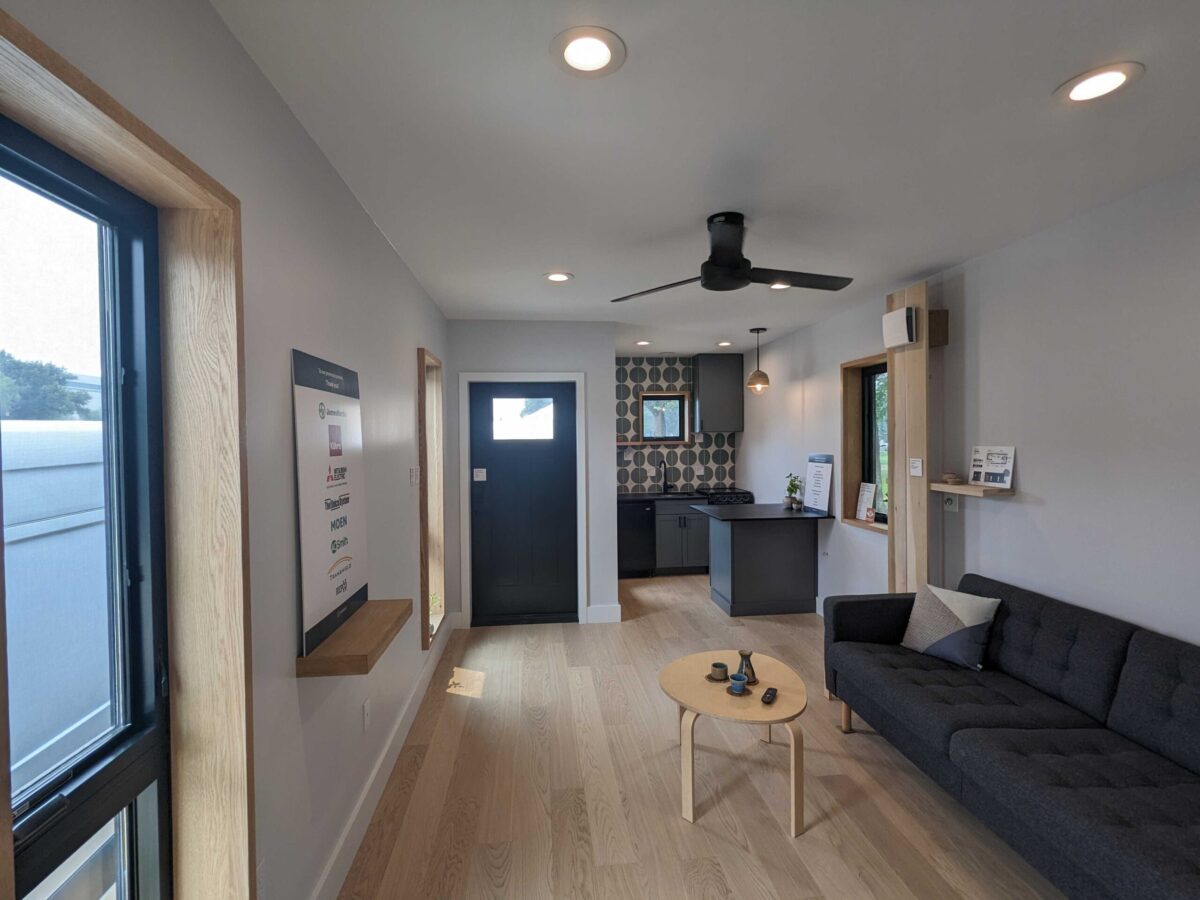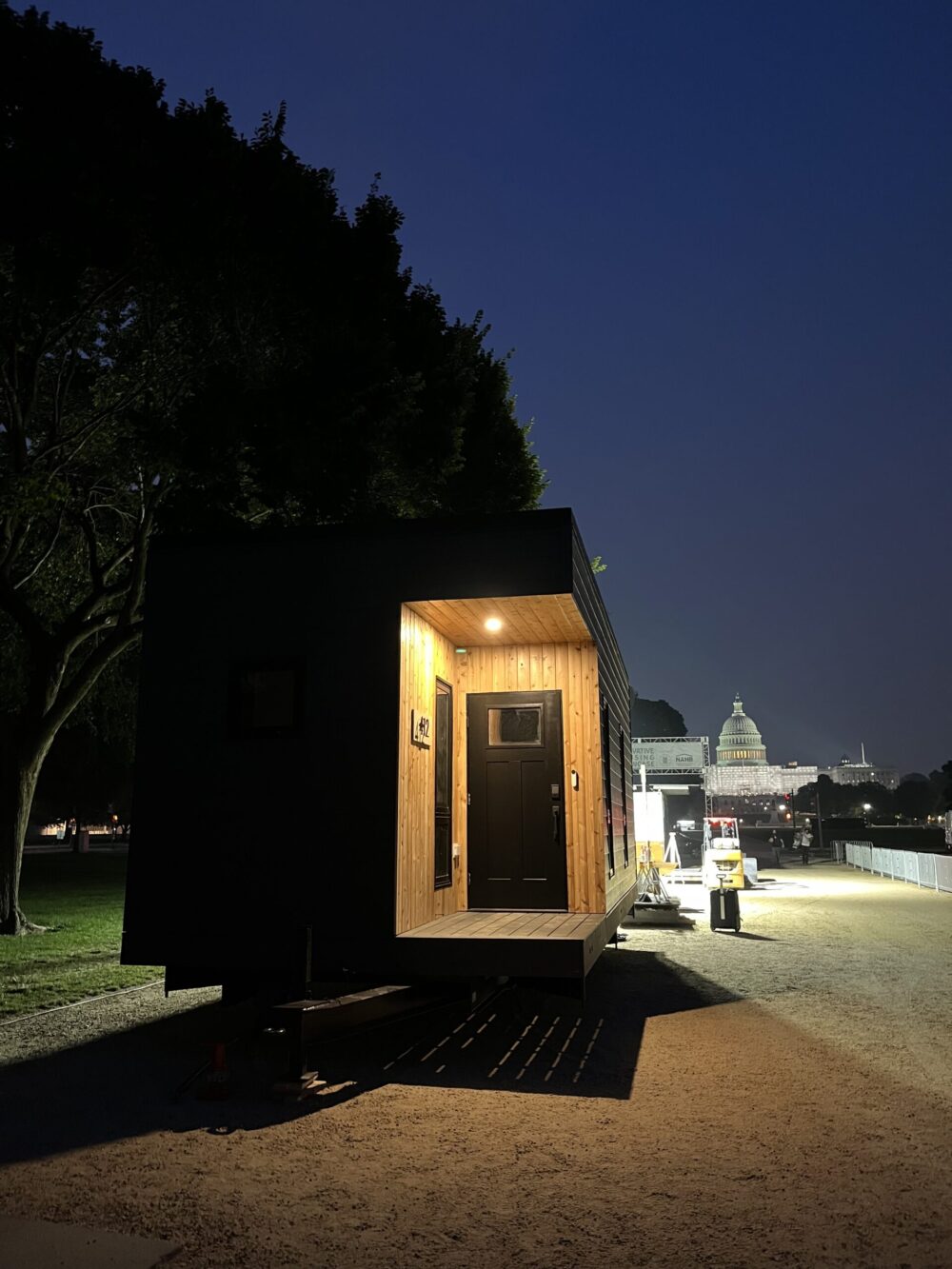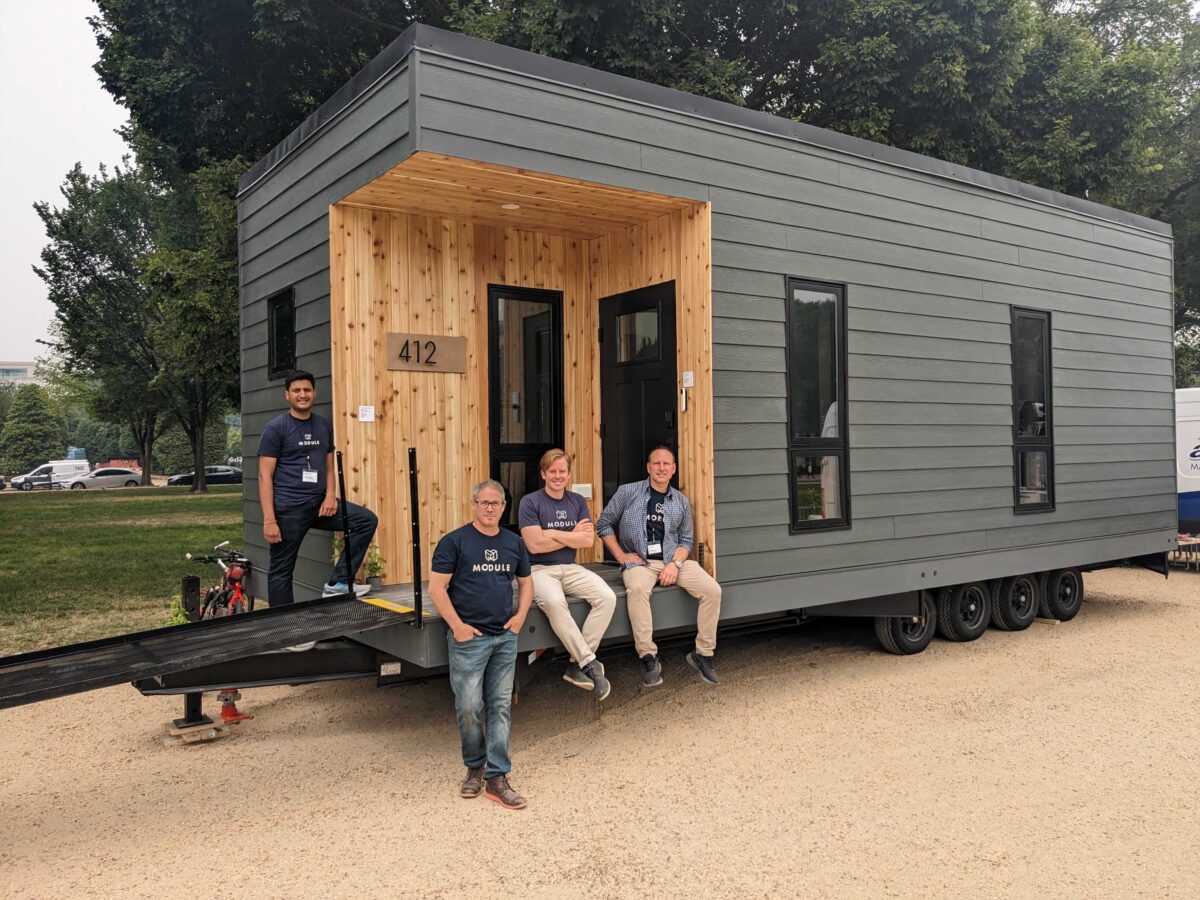You can typically spot Module at work in Pittsburgh, installing its modular housing units in vacant lots around the city.
This week, however, at the US Department of Housing and Urban Development’s request, the East Liberty-based housing startup has ventured to Washington DC to participate in the 2023 Innovative Housing Showcase on the National Mall.
CEO and cofounder Brian Gaudio told Technical.ly the goal is to give real estate developers from across the country a look at the company’s accessory dwelling unit, aka ADU, which it calls the Berkley. It also brings validation that the company’s work has national implications.
“This showcase provides us an opportunity to share best practices with a national audience, including the very policymakers who are a critical part to alleviating the nation’s housing shortage,” Gaudio said. While in the capital, Module employees will also host a daylong training session to educate real estate developers on leveraging modular construction for infill housing development.

Interior view of a Module ADU. (Courtesy photo)
Module’s business model revolves around providing affordable and sustainable housing. Gaudio says that the company’s ADU fits into its mission because it’s an all-electric dwelling that could fit in a person’s backyard. Taking up just 275 feet, the ADU was designed to meet the Department of Energy’s Zero Energy Ready Home Program standard and features a variety of energy-efficient features while including a kitchen, a bath and exterior insulation.
Gaudio believes ADUs can help to bring more affordable housing to cities across the country that need it, but there’s a major hangup: In many places, they’re illegal.
“In Pittsburgh, it is illegal to have an ADU and it’s a tool that I think could be very valuable if the city decided to legalize ADUs,” Gaudio said. “We hope that this demonstration provokes at conversation around legalization.”

The exterior of Module’s ADU at night. (Courtesy photo)
In a single-family residential zone, he said, developers are currently only allowed to build one house. Still, due to the need for affordable housing inside and outside Pittsburgh, he argued that the city should follow California’s lead and lift its restrictions.
Gaudio noted that there were previously plans in Garfield to pilot ADUs, but the plans never materialized. He attributes this to a combination of zoning laws and ignorance about the benefits of ADUs.
“I think it’s because there wasn’t enough education on what an ADU is,” he said.
Besides spreading news of its mission across the US, Module, which counts 10 employees, is pursuing growth in the form of a recent $1 million initial close. Gaudio said there’d be more to share once the details were finalized, but in the meantime, the company would continue to seek investment funding to expand its presence in Pittsburgh as well as scale to other markets.
Atiya Irvin-Mitchell is a 2022-2024 corps member for Report for America, an initiative of The Groundtruth Project that pairs young journalists with local newsrooms. This position is supported by the Heinz Endowments.Before you go...
Please consider supporting Technical.ly to keep our independent journalism strong. Unlike most business-focused media outlets, we don’t have a paywall. Instead, we count on your personal and organizational support.
Join our growing Slack community
Join 5,000 tech professionals and entrepreneurs in our community Slack today!

The person charged in the UnitedHealthcare CEO shooting had a ton of tech connections

From rejection to innovation: How I built a tool to beat AI hiring algorithms at their own game

Where are the country’s most vibrant tech and startup communities?



